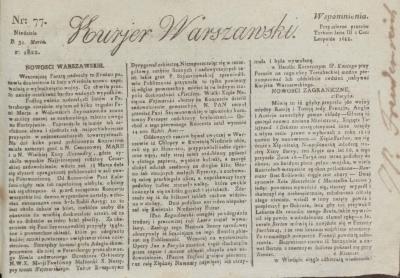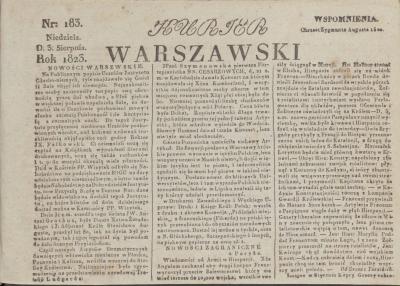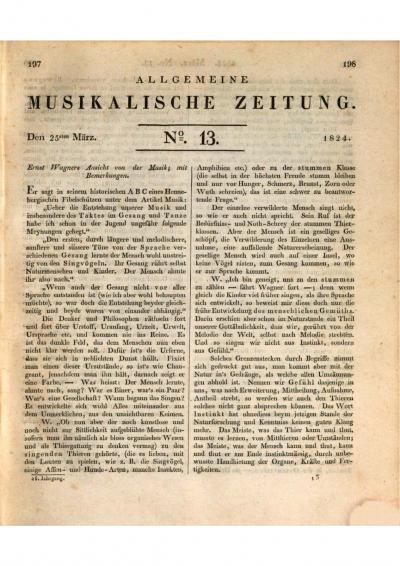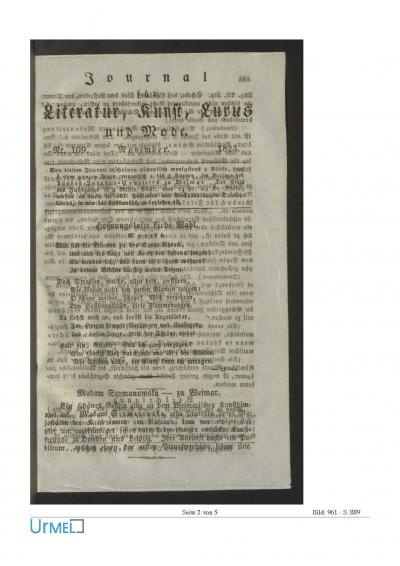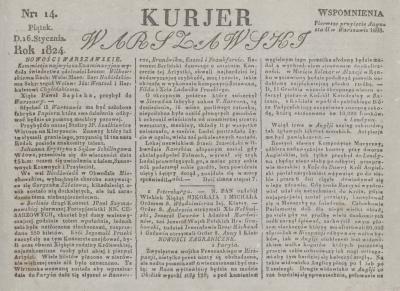Madame Szymanowska and Goethe – a burning love?

The Allgemeine musikalische Zeitung reported: “On 20 October, Mad. Szymanowska, first pianist to her Majesty the Empress of Russia, provided us with the most wonderful enjoyment. […] Mad. Szym. is a master of her instrument in the whole sense of the word. Skill and musical spirit are equally strong in her. […] Then the latest Rondo brillant by Hummel, a very rewarding composition, was performed by her with such certainty in strength and tenderness that the whole room resounded with the roar of the applause. Her playing was not overloaded; each tone is just as it should be …” (PDF 4).[49] The Abend-Zeitung published in Dresden wrote about the two concerts in Leipzig: “Mad. Maria Szymanowska … performed… first in a subscription concert and gained so much acclaim from her splendid playing that, when it came to the concerts that she herself later arranged, the room could hardly contain the numbers streaming in, a case, which is extremely rare in Leipzig where one is overloaded with music. Lay persons and connoisseurs were captivated by the precision and the expression of her playing and the latter claim it is an even greater joy to see her playing close up and to marvel at the agility of her fingers and her original fingering, which deviates completely from conventional rules. In private circles Mad. Szymanowska is also said to have bewitched through ingenious fantasies on the piano …”[50]
On 24 October 1823, Szymanowska “coming from Dresden and Leipzig” with her sister and brother, as Goethe noted in his diary,[51] arrived in Weimar and caused a sensation there as well. Chancellor von Müller noted: “Goethe held a large evening event to honour that interesting Polish virtuoso, Mad. Marie Szymanowska, about whom he has already told us so much and who arrived here yesterday with her sister Casimira Wolowska to visit him. He wrote the beautiful and emotional verses to her in Carlsbad (sic! Marienbad) which he recently read out to us and which express his thanks that her soulful playing brought peace to his soul again when the separation from Levezow had caused such a deep wound. Goethe was very cheerful and gallant the whole evening, he dined out on the general applause that Mad. Szymanowska received as much through her personality as through her soulful playing.”[52]
Every lunchtime, Szymanowska and her siblings ate with Goethe, whilst the pianist returned the favour by playing table music. On 27 October, Goethe again sent out an invitation to a musical evening: “Preparation for the evening concert. […] The crowd arrived gradually. Madame Szymanowska played. Madame Eberwein sang accompanied by string and brass instruments. Stayed until nearly 10 o’clock”, wrote Goethe in his diary.[53] Eckermann commented: “The following day I was told that the young Polish lady, Madame Szymanowska, in whose honour the festive evening had been held, played the piano quite masterfully to the delight of the entire crowd.”[54] The next day, according to Chancellor von Müller, there was another “concert at Goethe’s. A quartet from the composition of Prince Louis Ferdinand and played by Mad. Szymanowska gave Goethe the opportunity to make the most interesting comments. He conceived the idea, almost shyly you might say, that the artist should give a public concert and asked Schmidt, Coudray and myself to promote it in every way.”[55] On 30 October there was also “A concert at Goethe’s in the evening”[56]
[49] News. Leipzig, from Michael 1823 to March 1824, in: Allgemeine musikalische Zeitung, No. 13, Leipzig, 25 March 1824, column 204 (see PDF 4), online resource: https://www.digitale-sammlungen.de/de/view/bsb10528025?page=128,129
[50] Correspondence News. From Leipzig, in: Abend-Zeitung, No. 268, Dresden, 8.11.1823, page 1072, online resource: https://www.digitale-sammlungen.de/de/view/bsb10530367_00463_u001?q=Szymanowska&page=4
[51] 24 October 1823. Goethe: Tagebücher (see Note 28), page 132
[52] Friday, 24 October. Goethes Unterhaltungen (see Note 38), page 71, online resource: https://www.digitale-sammlungen.de/de/view/bsb11001483?page=86,87
[53] 27 October 1823. Goethe: Tagebücher (see Note 28), page 134
[54] Montag, den 27. Oktober 1823. Eckermann: Gespräche (see Note 38), page 72, online resource: https://www.digitale-sammlungen.de/de/view/bsb10068560?page=92,93
[55] Tuesday, 28 October. Goethes Unterhaltungen, page 71 (see Note 52). – Clemens Wenzeslaus Coudray, architect, worked as chief planning director in Weimar from 1816 until his death in 1845. In 1832, he was with Goethe during his last three days of life and prepared notes about them which would later be published.
[56] Thursday, 30 October. Goethes Unterhaltungen, page 71 (see Note 52)












